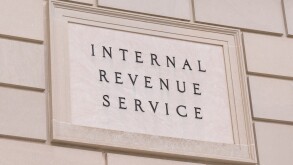The first panel of Brazil’s Superior Court of Justice (STJ) unanimously voted to dismiss standing by the Attorney’s Office of the National Treasury in Special Appeal number 1,221,170/PR. This brought an end to the Attorney’s plan to restrict the rights of taxpayers to tax credits for contributions to the Social Integration Plan (PIS) and Social Security Financing (COFINS) agenda, right before the country’s Independence Day (Proclamation of the Republic).
The STJ, in its decision on Special Appeal number 1,221,170/PR, clarified the concept of inputs for the purposes of PIS and COFINS tax credits, noting that:
"The concept of inputs must be checked in light of the criteria of essentiality or relevance, taking into account the indispensability or importance of a given item – whether a good or service – for the development of the economic activity undertaken by the taxpayer."
Given the concept of inputs, the STJ deemed that the restrictive environment established by Normative Instructions 247/2002 and 404/2004 by Brazil’s Federal Revenue Office (SRF) were illegal. The instructions had restricted the right to tax credits, similar to the rules applicable to the credits for tax on Manufactured Products (IPI); inputs added to the final product, or those that wear out through physical contact with the final product or service.
The ruling - registered under number 779 in the STJ’s system of repeated appeals - noted the following:
"The credit rationale in the SRF’s Normative Instructions 247/2002 and 404/2004 is illegal in that it compromises the efficacy of the non-cumulative system of PIS and COFINS contributions, as defined by Laws 10,637/2002 and 10,833/2003.
The concept of inputs must be checked in light of the criteria of essentiality or relevance, taking into account the indispensability or importance of a given item – whether a good or service – for the development of the economic activity undertaken by the taxpayer.”
Due to this decision, on September 26 2018, the National Treasury’s (PGFN) Attorney General issued Notice 63/2018, making public its interpretation of the ruling proffered by the STJ in order to guide both its own agencies as well as those of the Federal Revenue Office. The notice chose to use the “subtraction test” as one of the tools to define the concept of inputs, even though the PGFN itself expressly recognizes that this method is nowhere to be found in the STJ’s decision.
The “subtraction test” consists of the hypothetical elimination of the good or service from the economic activity undertaken. If the absence of the item results in the product or service becoming impossible, useless, or seeing a significant loss in quality to the extent that the company’s activity becomes unfeasible, such an item can be considered to be an input.
Applying the subtraction test used by the PGFN restricts and distorts the interpretation adopted by the STJ. As mentioned above, the STJ’s decision, which has been issued on the basis of repeat appeals, has by law the power to bind both the government as well as the decisions made in the Administrative Council of Tax Appeals (CARF).
Thus, the government as a whole – taken to be the Auditors of the SRF, Attorney’s Office of the National Treasury, and Councilors of CARF - must adhere to the understanding determined by the STJ.
CARF’s Higher Chamber of Tax Appeals has respected the legal decision - as shown by ruling number 9303-007,512 - which was passed last October and upheld the understanding of the STJ.
We can subsequently see that the matter was already resolved by the STJ.
This article was written by João Marcos Colussi and Luana Maluf da Silva Robles of Mattos Filho.

|
João Marcos Colussi |
|

|
Luana Maluf da Silva Robles |












